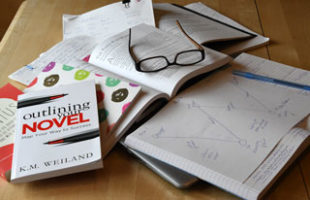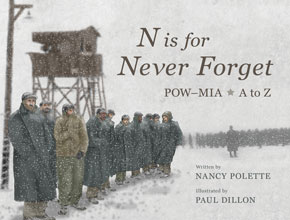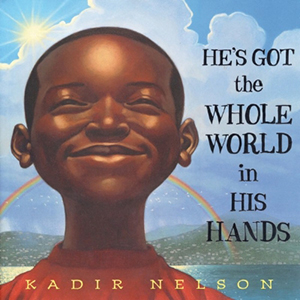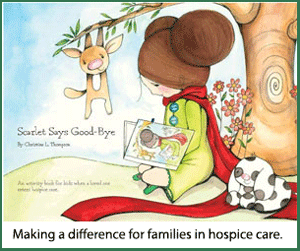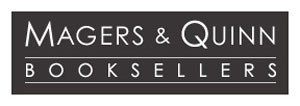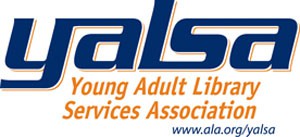Much of the hard work of writing is solitary, face to face with only a screen or notepad. Honing the craft of wordsmithing, like sharpening a tool, also requires contact, friction, and even a few sparks. Writing workshops provide all of those elements: contact with fellow craftspeople, the friction of constructive criticism, sparks of inspiration that fly from new perspectives and dedicated writing time. The most effective sharpening requires some preparation ahead of time, which varies depending on the workshop’s form and function.
One workshop’s focus may be helping writers get words on the page, while another aims to rework scenes, develop characters, or create dialogue. Another may provide space and time to think and write.
For writers, the payoff may go beyond the empirical to the ethereal. After one workshop, novelist Kathleen Rodgers recalls, “I came home feeling like I’d been to a holy place where my writing soul was nurtured.”
Kathleen considers that workshop, part of Story Circle Network Women’s Writing Conference in Austin, Texas, a high point.
“It required us to jot down first thoughts on issues that touched us as women,” she said. “There was no pressure to read our work out loud, but in this setting, surrounded by sister writers I’d just met, I felt free to read my first thoughts out loud knowing I would not be judged on writing skill, grammar, or punctuation.”
Workshops and exercises like the one Kathleen attended at Story Circle Network require vulnerability and honesty, but little or no homework. Workshops that aim for more measurable results may require writing to be submitted in advance to leaders and fellow participants. Still other workshops are selective, like those conducted by the Community of Writers at Squaw Valley or the Kenyon Review. Writers who wish to be considered for these sessions must submit an application, including samples of their best work.
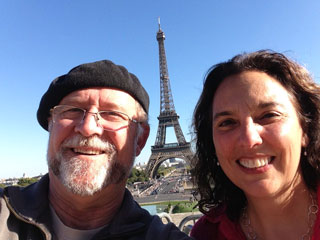
John Yewell and Mimi Herman lead Writeaways in locations that help writers get away from daily life to focus on their writing. Their greatest tip for writers to prepare for a workshop: come ready to be flexible, with your mind open to new ideas.
John Yewell and Mimi Herman lead Writeaways retreats in the United States, France, and Italy. For Writeaway by the River in North Carolina, John and Mimi require writers to submit work in advance, but not for a selection process. Instead, they encourage participants to send writing that is not yet perfected.
“The idea at our workshops is to seek help where you need it, not try to make a good impression,” says John. “We always recommend that writers resist the temptation to submit their best work—they’ll get less out of the workshop from the collective wisdom in the room if they submit something they think is refined, although even there they may be surprised at how much work their submission might need.”
For the Writeaways in France and Italy, writers don’t need to submit any work ahead of time. They can come with a project in progress or a goal to meet, but John and Mimi encourage them to bring an open mind as well. Participants spend the first day or two in private conferences with John and Mimi to refine what they want to do with their time during the week.
“Even people who think they know what they want to do often find themselves changing their minds after they arrive,” says Mimi. She advises writers to come prepared to be flexible.
“In the workshop itself, we recommend that participants think about what the piece wants to be when it grows up,” she says, “paying attention to the tone, style, voice and intent already in the piece, while also exploring how it can be improved.”
Mary Carroll Moore leads a variety of classes and workshops, including weeklong writing retreats sponsored by Madeline Island School of the Arts.
Before those one-week intensive sessions, Mary asks writers to send their writing projects to her. This gives Mary a sense of each student’s reason for attending and goals for the workshop. During the winter retreats—held in Tucson, Arizona, and Santa Fe, New Mexico—students meet daily for three-hour workshop sessions. They also have one-on-one coaching sessions, optional activities, and unstructured time for writing.
Mary also leads one-day workshops, and eight-week online programs for The Loft Literary Center in Minneapolis.
Some of Mary’s workshops are focused on building storyboards for scenes or image boards for characters, so part of the writer’s preparation is gathering materials, such as poster boards, magazines, and glue sticks. For free-writing exercises, she asks writers to bring significant objects for themselves if they are memoir writers, or for their characters if they are writing fiction.
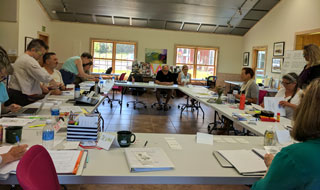
Mary Carroll Moore always leaves time in her workshops for generative writing and group interaction, both of which score high points from participants. She also encourages writers to review the writing they want to focus on at the workshop and know what they want to gain from the experience.
“I plan all my workshops to have time for generative writing,” says Mary. “My online classes have prompts each week. Some writers rely on these to get unstuck; others don’t need them. For instance, since first pages are so challenging for most writers, we spend an entire week deconstructing what needs to be on a first page, then each person can post their best efforts for feedback.”
Kathleen, with three published novels under her belt, has reaped the rewards of varying types of writing workshops, including competitive ones. A fiction contest sponsored by SouthWest Writers gave her the push she needed to finish her first novel, The Final Salute.
“I placed in the top five finalists, and that gave me the confidence to keep going,” she says. “At the conference, we met with the preliminary judge in a workshop setting to discuss our work. Those pages grew up to become my debut novel. Awards are nice, but sometimes the reward can simply be taking the plunge, putting our work into the hands of writing professionals who can help us improve our craft.”
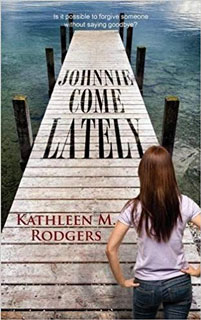
Award-winning novelist Kathleen Rodgers has attended a variety of workshops that have helped her focus on completing her novels and honing her craft.
For her second novel, Johnnie Come Lately, Kathleen says she attended a workshop that helped her stay focused and finish the manuscript. Another was all about polishing her story and her words. In that workshop, participants had to read their work out loud to the group.
“We weren’t allowed to bring copies of our work for others to follow along while we read. The objective was to listen. Listen to the pacing, the cadence, the storyline and word choices. That was the toughest and most exhaustive workshop I’ve been involved in but I grew as a writer.”
Workshops bring growth and productivity to writers in various ways. Even if advance writing submissions or homework are not required, getting the most out of a workshop will require preparation and thought. A few tips from workshop leaders:
- Take time to review the writing you want to focus on at the workshop and know what you want to gain from the experience, says Mary. “Print out your manuscript and do a complete read-through. Make a list of your questions, big and small. Think about what you’d like to have in hand by the end of the workshop. Do you need more craft skills? Do you need community and support? Do you need feedback? Do you need to get unstuck? Do you just need time away from all life’s demands to just write?”
- Be prepared to be open to new ideas when your work is discussed, John and Mimi advise. “At Writeaways we remind writers that we all have blind spots that the group can help us see. Workshops are invaluable opportunities for us to make huge strides forward in a short period of time. Think of the writer as the ball carrier and the other members of the group as blockers, trying to move the writing down the field to its ultimate goal.”
- Critique is often an important part of a workshop. Learn how to positively participate in the writing community. Some of the guidelines Mary uses in her workshops: When giving feedback, the more you offer the others, the more you’ll get. Give encouragement, as well as criticism. Use questions, which can open doors and help them see a new perspective. While being critiqued, resist the urge to comment or defend your work. Otherwise, peers don’t feel the freedom to respond fully. Wait until the feedback is done to respond and ask questions. Separate the story from the writer. The feedback or critique is for the story, not for the person who experienced it or wrote it.
“I hear, over and over, that the feedback is the reward,” says Mary. “Often, the writers go on to form writing groups after the class is over, because they’ve enjoyed the feedback so much.”
Kathleen says the responses of peers and leaders in workshops have made her a better and more confident writer. “It makes me more conscious of turning in polished work. All the workshops and critique groups I’ve attended through the years have helped me find the courage to submit my work to agents and editors.”
Of course, it takes a measure of courage. Baring one’s soul and manuscript can be a fearful prospect for any writer, but vulnerability is required to reap the benefits of critique and feedback.
“Writing is a lonely process,” Mary says. “ We need the community of other writers, for support and for ideas and for just knowing you’re not the only one going crazy, stuck at one place in a manuscript. Most writers also need confidence, in their book idea, in their writing voice, in their craft skills. In workshops, they can begin to see where they are strong naturally, and where they need to build skills. And they learn that everyone has strengths and weaknesses. We’re all beginners with each book we start.”
Kathleen Rodgers
Web: KathleenMRodgers.com
Facebook: /KathleenMRodgersAuthor
Twitter: @KathleenMRodger
Story Circle Network
Web: StoryCircle.org
Facebook: @StoryCircleNetwork
Twitter: @StoryCircle and @SCNBookReviews
Story Circle Network Women’s Writing Conference
John Yewell
Web: JohnYewell.com
Mimi Herman
Web: MimiHerman.com
Writeaways
Web: Writeaways.com
Facebook: /Writeawaysinfo
Twitter: @Writeawaysinfo
Community of Writers at Squaw Valley
Web: CommunityofWriters.org
Facebook: /CommofWriters
Twitter: @CommofWriters
Kenyon Review
Writers workshops: KenyonReview.org/writers
Facebook: /KenyonReview
Twitter: @KenyonReview
Mary Carroll Moore
Web: MaryCarrollMoore.com
Twitter: @WriteaBook
YouTube: @MaryCarrollMoore
Mary leads weeklong winter writing retreats through Madeline Island School of the Arts.
Mary’s classes through The Loft Literary Center include one-day classes in Minneapolis and eight-week classes online.
Madeline Island School of the Arts
Web: Madeline Island School of the Arts
Facebook: /MISAWorkshops
Instagram: @MadelineArtSchool/
The Loft Literary Center
Web: Loft.org
Facebook: /TheLoftLiteraryCenter
Twitter: @LoftLiterary
SouthWest Writers
Web: SouthWestWriters.com
Facebook: /SouthWestWriters
Twitter: @SW_Writer
Photo of John Yewell and Mimi Herman courtesy of John and Mimi.
Storyboarding workshop photo courtesy of Mary Carroll Moore.
Feature photo by Karen Pavlicin-Fragnito, who is preparing to attend Mimi and John’s Tuscany Writeaway. Books appearing in the photo include Story Genius by Lisa Cron, Outlining Your Novel by K.M. Weiland, and Weiland’s Creating Character Arcs Workbook, all recommended by fellow writers at a recent MNSCBWI writing workshop.
Terri Barnes is a regular contributor to Books Make a Difference magazine, author of the book Spouse Calls: Messages From a Military Life, and senior editor at Elva Resa Publishing (a publisher specializing in books for and about military families). She leads writing workshops about newspaper writing and personal journaling, and she daydreams about taking a writing retreat in the English countryside.
This article was first published October 2018.

